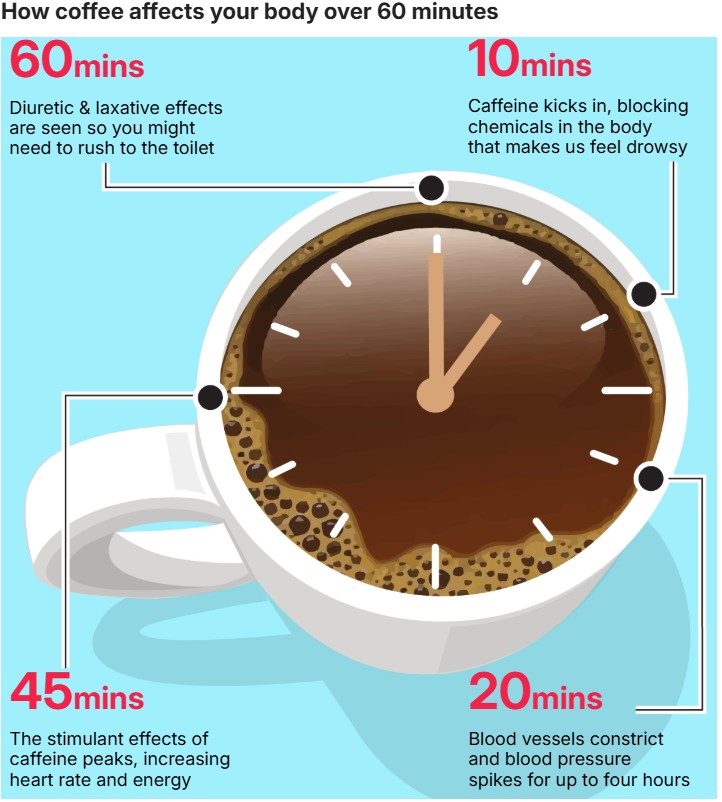
Regular coffee consumption could add up to five years to your life, a new scientific study suggests.
For years, coffee has been linked to a lower risk of heart disease, diabetes and dementia, but recent research suggests the benefits may be even greater — especially for people suffering from serious mental disorders.
A study published by the British Medical Group found that patients with disorders such as schizophrenia, bipolar disorder, and psychotic depression who drank 3 to 4 cups of coffee a day had longer telomeres — protective structures at the ends of chromosomes that protect DNA from damage. Longer telomeres are associated with slower biological aging and a longer lifespan.
This translates to about five years "younger" biologically, compared to people who don't drink coffee.
But only within recommended limits
The benefits were only seen in those who consumed up to four cups of coffee each day — the maximum limit suggested by institutions such as the NHS and the FDA. Consumption of five cups or more was found to have the opposite effect, causing telomere shortening and increasing health risks.
What do scientists say?
The study analyzed blood samples from 436 patients aged 18–65, diagnosed with schizophrenia or mood disorders, recruited at four psychiatric hospitals in Oslo between 2007 and 2018. The data showed a significant difference in telomere length between coffee consumers and non-drinkers.

Experts point out that coffee contains bioactive substances with strong antioxidant properties, such as chlorogenic acid, caffeol, kahweol, and trigonelline, which can reduce inflammation and oxidative stress — two factors that accelerate cellular aging and are common in patients with severe mental disorders.
Not all effects are clear
However, the researchers caution that further research is needed. Coffee is not a single substance — the type, composition, preparation method, and amount of caffeine can all have different effects. Furthermore, participants self-reported their consumption, which could affect the accuracy of the results.
Dr. Elizabeth Akam, a biologist at Loughborough University, says that to prove a direct link between coffee and longevity, it is necessary to analyze exactly which substances in coffee affect telomeres and at what doses.
A worrying background
The study comes at a time when cases of depression, anxiety and bipolar disorder in young people are on the rise. Currently, about 34% of young people report symptoms of a mental disorder — a phenomenon that has worsened in recent years. /GazetaExpress/